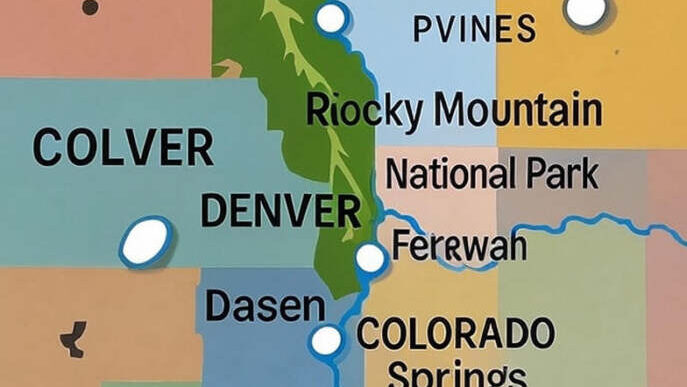Pay Stub Requirements in Colorado: Professional Tips for Employers & Employees
Introduction — Understanding Pay Stub Requirements in Colorado
Pay stubs are an essential component of payroll management, offering employees detailed records of wages, deductions, and net pay.
In Colorado, while employers are not legally required to issue pay stubs, maintaining accurate payroll records is mandatory.
Following Pay Stub Requirements in Colorado ensures legal compliance, employee satisfaction, and smooth payroll operations.
Providing accurate pay stubs helps employees verify earnings, track deductions, and maintain personal financial records.
It also protects employers by reducing disputes, ensuring transparency, and simplifying audits.
Employers can learn more about payroll compliance through official state resources.
Key Components of Colorado Pay Stubs
Even though Colorado law does not require pay stubs, a professional and detailed pay stub should include the following:
- Employee Information: Name, employee ID, and job title.
- Employer Information: Company name, address, and contact details.
- Pay Period: Start and end dates of the payroll cycle.
- Gross Wages: Total earnings including regular pay, overtime, bonuses, and commissions.
- Deductions: Taxes, insurance, retirement contributions, and other authorized deductions. Refer to IRS Payroll Guidelines.
- Net Pay: The final amount received after deductions.
- Hours Worked: Regular and overtime hours clearly documented.
- Leave Balances: Optional, including vacation or sick leave accruals.
Employers can generate professional pay stubs using the Pay Stub Generator or refer to examples at Regular Pay Stub Details.
Legal Considerations for Pay Stub Requirements in Colorado
Colorado law requires employers to maintain accurate payroll records for all employees, including hours worked, wages, and deductions.
While providing pay stubs is not mandatory, it is considered best practice for transparency and recordkeeping.
Maintaining detailed payroll records helps employers remain compliant with state and federal labor laws.
Employers should retain payroll records for at least three years. Providing detailed pay stubs can also help prevent disputes and simplify audits.
For federal guidance, employers can consult the U.S. Department of Labor.
Step-by-Step Payroll Compliance Guide in Colorado
A structured payroll process ensures compliance with Pay Stub Requirements in Colorado:
- Track Employee Hours: Record regular and overtime hours accurately.
- Calculate Gross Pay: Include wages, overtime, bonuses, and commissions.
- Apply Deductions: Subtract taxes, insurance, retirement contributions, and other authorized deductions accurately.
- Determine Net Pay: Calculate the final amount to be paid to the employee.
- Generate Pay Stubs: Use tools like the Pay Stub Generator or refer to Regular Pay Stub Details.
- Maintain Records: Keep payroll records for at least three years to comply with state and federal laws.
Best Practices for Employers in Colorado
- Automate payroll using a reliable Pay Stub Generator to reduce errors.
- Provide electronic pay stubs for employee convenience.
- Double-check deductions, overtime, and bonus calculations for accuracy.
- Maintain organized and secure payroll records for compliance purposes.
- Communicate payroll policies clearly with employees.
Tips for Employees Reviewing Pay Stubs
- Verify all personal information, job title, and pay rate.
- Check hours worked, including overtime and leave balances.
- Review all deductions. For detailed guidance, refer to the IRS Payroll Guidelines.
- Keep copies of pay stubs for personal records and tax purposes.
- Report any discrepancies immediately to the employer for correction.
Common Mistakes Employers Should Avoid
- Miscalculating gross pay, overtime, or deductions.
- Failing to record all hours worked accurately.
- Omitting required employee or employer information on pay stubs.
- Not maintaining payroll records for the legally required period.
How a Pay Stub Generator Simplifies Compliance
Using a professional Pay Stub Generator helps employers comply with Pay Stub Requirements in Colorado efficiently. Benefits include:
- Automatic calculation of gross pay, deductions, and net pay.
- Generation of professional, accurate pay stubs.
- Provision of digital or printable pay stubs for employees.
- Reduction of errors and time-saving for payroll management.
Frequently Asked Questions (FAQs)
Q1: Are pay stubs required in Colorado?
Pay stubs are not legally required, but maintaining detailed payroll records is mandatory. Providing pay stubs is a best practice.
Q2: How long should payroll records be retained?
Employers must retain payroll records for at least three years in compliance with state and federal regulations.
Q3: Can pay stubs be provided electronically?
Yes, electronic pay stubs are acceptable. Tools like the Pay Stub Generator make the process accurate and easy.
Conclusion — Ensuring Accurate and Compliant Pay Stubs in Colorado
Following Pay Stub Requirements in Colorado ensures transparency, compliance, and trust between employers and employees.
Employers should use tools like the Pay Stub Generator, maintain accurate payroll records, and provide detailed pay stubs regularly.
Employees should review their pay stubs carefully and retain copies for personal and financial records. Proper pay stub management supports a professional, transparent workplace.
For examples of properly formatted pay stubs, visit Regular Pay Stub Details.

